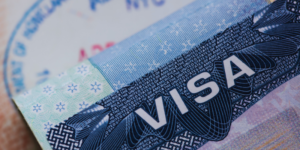Saudi Arabia is a popular destination for expats seeking job opportunities due to its thriving economy, particularly in sectors like oil, gas, healthcare, IT, and engineering. Expats are valued for their expertise and bring skills that may be in short supply locally, often with competitive compensation packages. Here’s an overview of the expat job market in Saudi Arabia, including key sectors, requirements, and resources for securing employment.
1. Top Sectors for Expat Jobs in Saudi Arabia
Expats in Saudi Arabia primarily find opportunities in the following sectors:
- Oil and Gas: Given Saudi Arabia’s prominent role in global energy markets, expats in engineering, project management, and environmental science are frequently hired. Positions in this sector are among the highest-paid for expats.
- Healthcare: Hospitals and medical facilities often seek doctors, nurses, and healthcare administrators. Professionals with international experience are highly valued.
- Information Technology (IT): Roles in IT management, software engineering, and cybersecurity are in high demand as Saudi Arabia invests in digital infrastructure.
- Construction and Engineering: With ongoing infrastructure projects, engineers, architects, and project managers are essential, especially in Riyadh, Jeddah, and Dammam.
- Education: As Saudi Arabia modernizes its education system, opportunities for teachers and academic professionals, especially those with ESL (English as a Second Language) qualifications, have grown.
2. Visa and Documentation Requirements
Working in Saudi Arabia requires securing the appropriate work visa. Generally, companies sponsor the visa application, and it involves:
- Offer Letter and Contract: The employer typically provides a formal offer and a contract that is required for visa processing.
- Work Visa Application: Sponsored by the hiring company, it includes a medical examination and attestation of educational and professional qualifications.
- Iqama (Residency Permit): The Iqama is a residence permit that must be carried at all times. It allows expats to live, work, and open a bank account in Saudi Arabia.
3. Benefits and Compensation for Expats
Saudi Arabia’s expat packages are known for being lucrative, especially in roles requiring high levels of expertise. Benefits often include:
- Housing and Transportation Allowances: Many companies cover accommodation costs or offer housing allowances.
- Annual Airfare: Most employers provide a return airfare to the expat’s home country once a year.
- Health Insurance: Comprehensive healthcare is typically covered, providing peace of mind for expats and their families.
- Family Support: Certain companies assist with schooling and family visas, making it easier for expats to relocate with dependents.
4. How to Find Expat Jobs in Saudi Arabia
To begin your job search, consider using popular job portals and recruitment agencies that specialize in Saudi Arabia:
- Bayt and GulfTalent offer extensive listings across sectors and can be filtered based on experience level and job role.
- LinkedIn is also a valuable platform for networking with professionals and recruiters in Saudi Arabia.
- Industry-Specific Sites: Platforms like expatriates.com cater to both skilled and semi-skilled jobs, allowing you to connect with employers directly for roles ranging from engineering to hospitality.
5. Cultural Adaptation and Professional Etiquette
Saudi Arabia has a unique culture, and expats should be prepared to adapt to local customs. This includes:
- Work Week and Hours: The Saudi workweek runs from Sunday to Thursday, with Friday and Saturday as the weekend.
- Business Etiquette: Punctuality is key, and dress codes are generally conservative. Developing a basic understanding of Arabic is helpful but not required.
- Legal and Cultural Considerations: Expats are expected to respect local laws and customs, including restrictions on certain social behaviors and dress codes.
6. Challenges and Considerations
While the professional opportunities are appealing, working in Saudi Arabia presents unique challenges for expats:
- Cultural Adjustment: The conservative lifestyle and climate may be challenging initially, though most expats adapt quickly.
- Limited Social Freedom: Certain restrictions, such as gender segregation in some public areas, may be unfamiliar to newcomers.
- High Temperatures: The desert climate is hot, especially during the summer months.
Saudi Arabia’s Vision 2030 initiative promises an influx of new sectors, enhancing opportunities for expats, particularly in tourism, entertainment, and technology. For those seeking professional growth and willing to adapt to a new culture, the kingdom offers a compelling career path.




